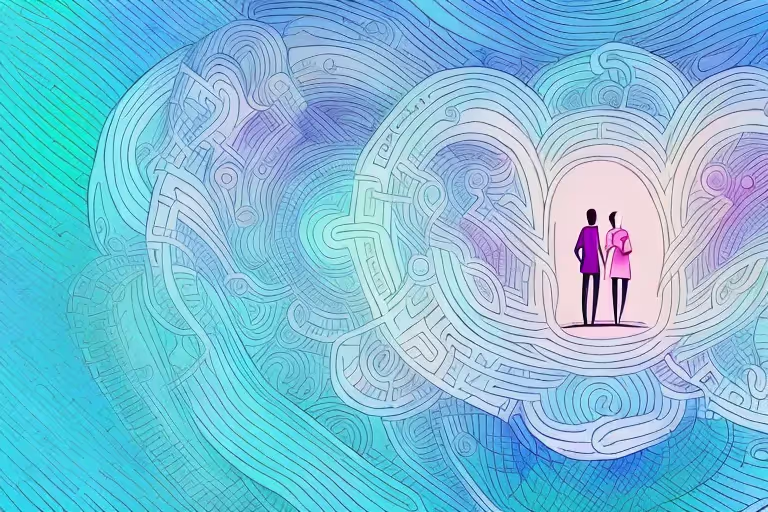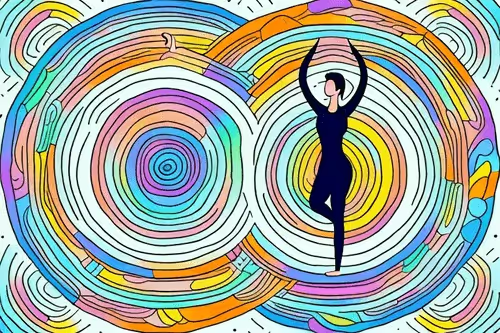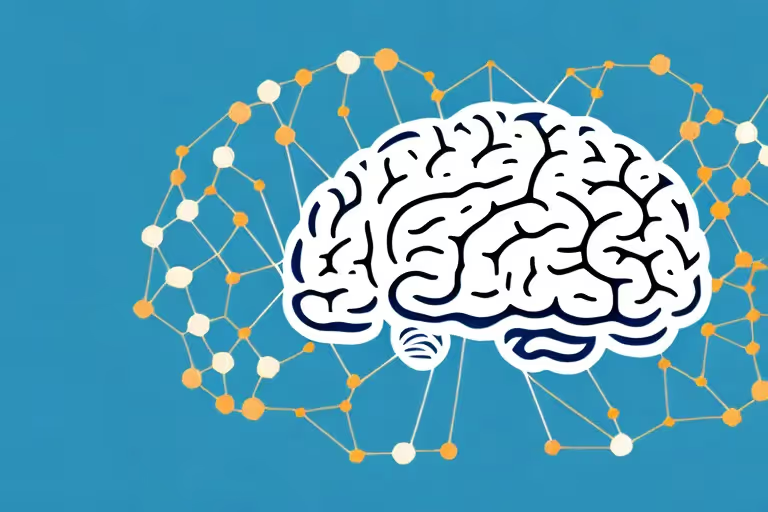Anxiety is a common mental health condition that affects millions of people worldwide. It can manifest in various ways, such as excessive worrying, restlessness, and physical symptoms like rapid heartbeat and shortness of breath. If left untreated, anxiety can have long-term effects on an individual's overall well-being and quality of life. Fortunately, there are medications available that can help manage anxiety, one of which is Prozac.
Understanding Anxiety: Causes and Symptoms
Anxiety is a normal emotional response to stress or perceived threats. It becomes a concern when it becomes excessive, irrational, and interferes with daily activities. Anxiety disorders are a group of mental health conditions characterized by persistent and overwhelming anxiety.
But what exactly causes anxiety? There isn't a single answer to this question, as anxiety can be caused by a combination of factors. Some common causes of anxiety include:
- Genetics: Research has shown that anxiety disorders can run in families, suggesting a genetic predisposition.
- Brain Chemistry: Imbalances in certain brain chemicals, such as serotonin and dopamine, can contribute to the development of anxiety disorders.
- Environmental Factors: Traumatic events, such as physical or emotional abuse, can trigger anxiety. Additionally, ongoing stress in one's environment, such as work or relationship problems, can also contribute to anxiety.
- Personality Traits: Certain personality traits, such as being highly self-critical or having a tendency to overthink, can make individuals more susceptible to anxiety.
It's important to recognize the symptoms of anxiety in order to seek appropriate help and support. Common symptoms of anxiety include excessive worry, feeling restless or on edge, irritability, difficulty concentrating, and muscle tension. Physical symptoms such as rapid heartbeat, sweating, and trembling are also common.
However, anxiety is not just limited to these symptoms. It can manifest in various ways, affecting different individuals differently. Some individuals may experience panic attacks, which are sudden and intense episodes of fear accompanied by physical symptoms like shortness of breath and chest pain. Others may struggle with specific phobias, such as a fear of heights or spiders, which can lead to avoidance behaviors.
When left untreated, anxiety can have significant long-term effects on an individual's mental and physical health. It can lead to the development of other mental health disorders, such as depression and substance abuse. Chronic anxiety can also weaken the immune system, increase the risk of cardiovascular problems, and negatively impact relationships and overall quality of life.
Fortunately, there are effective treatments available for anxiety disorders. Psychotherapy, such as cognitive-behavioral therapy (CBT), can help individuals identify and change negative thought patterns and behaviors that contribute to anxiety. Medications, such as selective serotonin reuptake inhibitors (SSRIs), may also be prescribed to help manage symptoms.
It's important to remember that everyone's experience with anxiety is unique, and what works for one person may not work for another. Finding the right treatment approach may require some trial and error, but with the right support and resources, individuals can learn to manage and overcome their anxiety.
An Overview of Prozac: Uses and Mechanism
What is Prozac?
Prozac, also known by its generic name fluoxetine, is a type of medication called a selective serotonin reuptake inhibitor (SSRI). It works by increasing the levels of serotonin, a natural chemical in the brain that helps regulate mood, in the synapses between nerve cells.
Prozac has been widely used since its approval by the U.S. Food and Drug Administration (FDA) in 1987. It has helped millions of people around the world manage their symptoms of various mental health conditions, improving their overall well-being and quality of life.
When Prozac was first introduced, it revolutionized the treatment of depression and other mood disorders. Prior to its availability, treatment options were limited and often ineffective. Prozac offered a new hope for those suffering from debilitating symptoms, providing them with a chance to regain control of their lives.
How Does Prozac Work?
Prozac works by inhibiting the reuptake of serotonin, allowing more of the neurotransmitter to be available in the brain. This increase in serotonin levels helps improve mood and reduce anxiety symptoms.
Specifically, Prozac blocks the serotonin transporter protein, which is responsible for reabsorbing serotonin into the presynaptic neuron after it has been released. By blocking this reuptake process, Prozac effectively increases the concentration of serotonin in the synaptic cleft, enhancing its signaling and prolonging its effects.
It is important to note that Prozac does not directly produce serotonin. Instead, it modulates the levels of serotonin that are already present in the brain, helping to restore the delicate balance of neurotransmitters necessary for mental well-being.
Other Uses of Prozac
In addition to treating anxiety, Prozac is also commonly prescribed for depression, obsessive-compulsive disorder (OCD), and bulimia nervosa. It may also be used off-label for other conditions as determined by healthcare professionals.
Depression is a serious mental health condition characterized by persistent feelings of sadness, hopelessness, and a loss of interest in activities. Prozac, with its ability to increase serotonin levels, has proven to be an effective treatment option for many individuals struggling with depression.
OCD is a chronic disorder characterized by intrusive thoughts and repetitive behaviors that individuals feel compelled to perform. Prozac, by modulating serotonin levels, helps reduce the frequency and intensity of these symptoms, allowing individuals with OCD to regain control over their thoughts and actions.
Bulimia nervosa is an eating disorder characterized by recurrent episodes of binge eating followed by purging behaviors. Prozac, in combination with therapy, can help individuals with bulimia nervosa manage their symptoms and develop healthier eating habits.
Furthermore, Prozac has shown promise in the treatment of other conditions such as panic disorder, social anxiety disorder, and post-traumatic stress disorder (PTSD). Its effectiveness in these areas is still being studied, but early research suggests that Prozac may offer relief for individuals struggling with these mental health challenges.
It is important to remember that Prozac should only be used under the guidance and supervision of a healthcare professional. They will assess an individual's specific needs and determine if Prozac is an appropriate treatment option, taking into consideration factors such as medical history, potential side effects, and interactions with other medications.
Prozac for Anxiety: The Science Behind It
Clinical Studies on Prozac and Anxiety
Numerous clinical studies have been conducted to evaluate the effectiveness of Prozac in treating anxiety. These studies have shown positive results, with Prozac demonstrating efficacy in reducing anxiety symptoms and improving overall functioning.
Understanding the Effectiveness of Prozac in Treating Anxiety
The effectiveness of Prozac in treating anxiety may vary from individual to individual. It is important to note that while Prozac can provide symptom relief, it is not a cure for anxiety. It should be used as part of a comprehensive treatment plan that may include therapy and lifestyle modifications.
The Pros and Cons of Using Prozac for Anxiety
Benefits of Using Prozac for Anxiety
One of the main benefits of using Prozac for anxiety is its proven effectiveness in reducing anxiety symptoms. It can help individuals regain control over their thoughts and emotions, allowing for improved daily functioning and a better quality of life.
Potential Side Effects and Risks
Like any medication, Prozac comes with potential side effects and risks. Common side effects may include nausea, headache, insomnia, and sexual dysfunction. It is essential to discuss the potential risks and benefits with a healthcare professional before starting Prozac.
How to Use Prozac for Anxiety: Dosage and Administration
Starting Prozac: What to Expect
When starting Prozac, it is essential to follow the prescribed dosage and administration instructions provided by a healthcare professional. It may take several weeks for the medication to reach its full therapeutic effect, so patience is key during the initial phase of treatment.
Dosage Guidelines
The appropriate dosage of Prozac for anxiety may vary depending on individual factors such as age, overall health, and the severity of symptoms. It is crucial to consult with a healthcare professional for personalized dosage recommendations.
Tips for Taking Prozac
Here are some tips for taking Prozac:
- Take Prozac as prescribed by a healthcare professional.
- Avoid taking alcohol with Prozac.
- Try to take it at the same time each day to establish a routine.
- Avoid abruptly stopping Prozac without consulting a healthcare professional.
- Do not exceed the prescribed dosage.
- Be aware of potential interactions with other medications and inform healthcare professionals of all medications being taken.
- Report any unusual side effects or concerns to a healthcare professional.
In conclusion, Prozac can be an effective medication for managing anxiety. It works by increasing serotonin levels in the brain, which helps improve mood and reduce anxiety symptoms. However, like any medication, it comes with potential side effects and risks. It is important to work closely with a healthcare professional to determine the appropriate dosage and monitor for any adverse effects. Together with therapy and lifestyle modifications, Prozac can be a valuable tool in the treatment of anxiety.
Unlock the benefits of managing your mental health with the Aura Health App. With its user-friendly interface and wide range of features, the Aura Health App provides a convenient way to track your mood, practice mindfulness, and access guided meditation sessions. Take control of your well-being and start your journey to a healthier mind today.
Aura is Your All In One App for Meditation, Mindfulness Wellbeing
Find peace every day with one app for your whole well-being. There is no one-size-fits-all solution to mental well-being. Aura is the first all-in-one wellness app that learns how to best help you. Discover an endless library of expert-created tracks for your well-being, all taught by the world’s best coaches, therapists, and storytellers. With Aura's personalized recommendations, you can find peace every morning, day and night.



.webp)






.avif)

%20(1).avif)


.avif)
.avif)
.webp)


.avif)


















































































































.avif)

















.svg)









